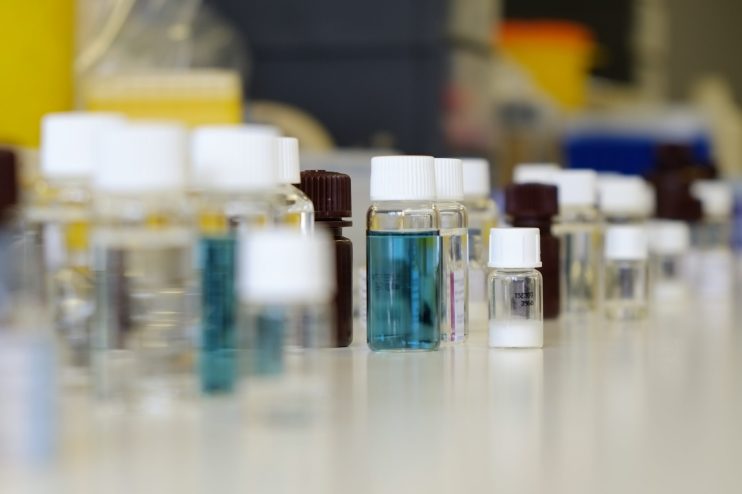
Biotech seeks to seize the moment

Biotech was outperforming the broader market before the pandemic hit – since then its relative performance has been stronger still.
So proclaims a timely publication showcasing investment trends, performance and opportunities published last week by the UK BioIndustry Association (BIA), which seeks to ‘lift the lid’ on one what is naturally an R&D-heavy sector.
Biotech – biology-driven technology – uses biological processes to develop products, most prominently new medicines. The global race battle against coronavirus has catapulted the sector to prominence.
The ‘Opportunity on Your Doorstep’ report from the BIA, which represents more than 300 companies, captures – and seeks to capitalise on – the moment. Produced with support from the London Stock Exchange (LSE), its 64 pages aim to ‘demystify’ biotech for non-specialists and provide practical advice for wannabe investors.
‘As the sector mobilises to find solutions to the Covid-19 crisis, there is acute interest from governments and much of the public across the world. We all now depend on effective medicines, diagnostic tests, and ultimately a vaccine, to get economies and our normal lives going again,’ says Steve Bates, the association’s chief executive for the past eight years, introducing the guide.
‘Nothing short of astonishing’ is how the LSE’s interim chief executive, Denzil Jenkins, describes the industry’s response to the pandemic, in respect of vaccine development and producing testing and diagnostic kit, in his overview.
Demystifying and diversifying
UK biotech enjoys an increasingly diverse set of investors, with 2018 a record-breaking year for total investment. The sector’s long-term returns (10 years) have outperformed other sectors, including pharmaceuticals and tech, in both venture capital and public markets, according to a share-price analysis published alongside the BIA report: the combined share price of the UK quoted biotech sector is up 133% against the FTSE-100 over the past year and 124% in the past five years. Quoted companies involved in developing Covid-19-related technologies are up 545% in the past year.
Broader trends are also positive, both within healthcare – for example, the increasing demand for treatments as populations grow and age – and within the investment arena, with the rising importance of environmental, social and governance (ESG) factors.
Meanwhile, government intends to push things along on the investment side, with plans announced to channel £200m of spending through the British Business Bank (BBB) – the private sector is expected to contribute around a further £400m.
Ultimately, it’s a global game. Five years ago City AM reported on the attraction to UK-based biotech companies of the Nasdaq and, today, the USA remains the biotech investment mothership. China’s star is rising fast. But the UK is a European star, reports have flagged.
Patience is a virtue
Biotech requires patience. As the BIA report acknowledges, most experimental therapies fail to make it to market.
Ian Connatty, managing director of British Patient Capital – created by the BBB two years ago with £2.5bn to invest over 10 years into venture and venture growth capital funds – is well positioned to have a view on the sector.
“Advances in areas such as artificial intelligence, computational biology and bioinformatics, even before Covid-19 were leading many to refer to a ‘golden age’ of biotech,” he tells City AM. “Some of the most exciting companies in this area, with the potential to scale into global leaders, are emerging from the UK’s world-class universities.”
Connatty continues: “Venture capital is providing the long-term finance to facilitate these companies’ rapid development. Investment into life sciences-focused venture capital offers institutional investors a unique way to gain exposure to some of the promising biotech opportunities, and capture the value created by their rapid growth.”
‘Now… I see greater excitement’
Biotech business leaders are optimistic that more investors are tuning in.
Arquer Diagnostics is a 10-strong biotech company based in Sunderland that has developed tests for the detection of bladder, endometrial and prostate cancer. The company has previously raised in excess of £7m from investors and the government – it has benefited from Innovate UK grants (one specifically awarded as part of the Covid-19 recovery scheme) – and is in the midst of a new fundraising round.
The company’s chief executive, Nadia Whittley, believes – in line with the BIA report – that coronavirus has highlighted the wider investment opportunities in the healthcare sector as a whole.
“I have previously found that a lot of investors tend to roll their eyes when they hear we’re a diagnostics firm – they’re often more interested in more immediate and fashionable sectors,” she tells City AM. “But now, given Covid-19, I see greater excitement. Investors understand now the importance of the wider biotech industry within the ecosystem and how future-proofing this industry is important for everybody.”